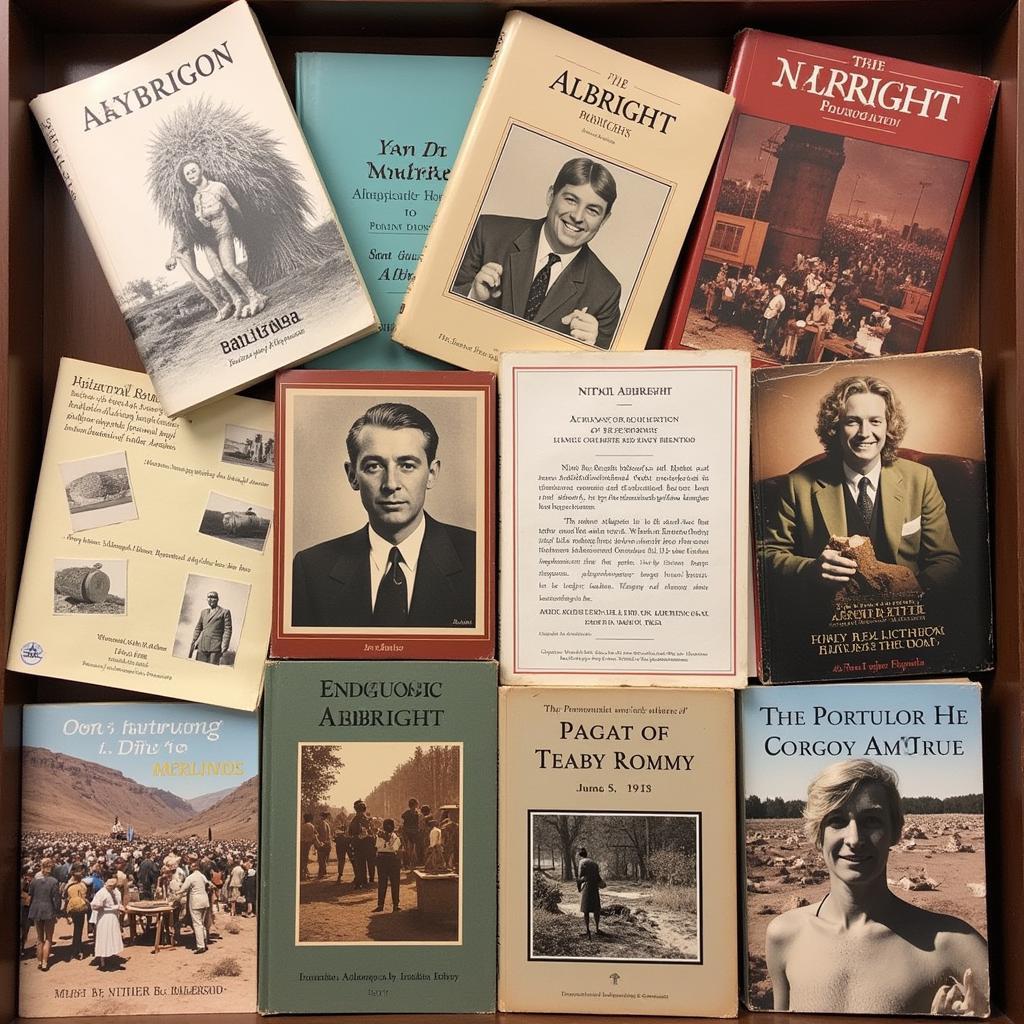William Foxwell Albright, a towering figure in biblical archaeology and Near Eastern studies, revolutionized our understanding of ancient civilizations. His meticulous excavations, groundbreaking decipherments, and insightful interpretations illuminated the historical context of the Bible and shed light on the complex tapestry of cultures that shaped the ancient world. This exploration delves into Albright’s remarkable life, from his early years to his lasting impact on the field. Let’s begin our journey into the world of this intellectual giant.
william foxwell albright autobiography
Born in 1891 in Chile to American Methodist missionaries, Albright’s early life was steeped in a rich blend of cultures and languages. This early exposure ignited a lifelong passion for understanding the ancient world. He displayed a prodigious aptitude for languages, mastering Hebrew, Greek, Latin, and several modern languages before even entering college. His insatiable curiosity and intellectual rigor propelled him towards a career dedicated to unraveling the mysteries of the past. Albright’s contributions to biblical archaeology and Near Eastern studies are vast and varied, spanning decades of dedicated research and fieldwork.
The Formative Years of William Foxwell Albright
Albright pursued his academic passions at Upper Iowa University and then Johns Hopkins University, earning his doctorate in 1916. His doctoral dissertation focused on the early history of the Hebrew language, demonstrating his early interest in the linguistic and historical context of the Bible. This marked the beginning of a scholarly journey that would transform the field of biblical archaeology. Albright’s dedication to meticulous research and his innovative approach to interpreting archaeological findings set him apart from his contemporaries. He pioneered the use of pottery typology for dating archaeological strata, a technique that revolutionized the field and enabled more precise chronological reconstructions of ancient sites.
Albright’s Groundbreaking Contributions to Archaeology
Albright’s impact extended far beyond the realm of theory. He participated in and directed numerous archaeological excavations in the Near East, including Tell Beit Mirsim, Beth-zur, and Gibeah (Tell el-Ful). These excavations unearthed a wealth of artifacts and inscriptions, providing invaluable insights into the daily lives, religious practices, and political structures of ancient civilizations. Albright’s meticulous approach to excavation and his keen eye for detail allowed him to extract the maximum amount of information from each site. His discoveries provided crucial evidence for reconstructing the chronology of the ancient Near East and for understanding the cultural interactions between different groups. He wasn’t afraid to challenge conventional wisdom, often proposing bold new interpretations based on his findings. This willingness to push the boundaries of knowledge contributed significantly to the advancement of the field.
Deciphering the Past: Albright and Ancient Inscriptions
Albright’s expertise in ancient languages proved invaluable in deciphering numerous inscriptions, including those written in Ugaritic, a previously unknown language discovered at Ras Shamra (ancient Ugarit). These decipherments provided a crucial window into Canaanite religion and mythology, shedding light on the cultural context of the Old Testament. His linguistic skills enabled him to unlock the secrets of these ancient texts, revealing a rich tapestry of stories, rituals, and beliefs. This work not only broadened our understanding of Canaanite culture but also provided a comparative framework for interpreting biblical texts.
Albright’s Legacy: Shaping the Future of Archaeology
“Albright’s legacy continues to inspire archaeologists and scholars today,” states Dr. Amelia Stone, a renowned archaeologist specializing in the Near East. “His rigorous methodology and interdisciplinary approach remain cornerstones of the field.” Albright’s work has had a profound and lasting influence on the field of biblical archaeology, shaping generations of scholars and inspiring new avenues of research. His emphasis on the importance of historical context and interdisciplinary studies has become a defining characteristic of modern archaeological practice. His insights continue to inform our understanding of the ancient Near East and the historical context of the Bible.
 William Foxwell Albright's enduring legacy and influence on the field of archaeology
William Foxwell Albright's enduring legacy and influence on the field of archaeology
Conclusion: A Pioneer of Biblical Archaeology
William Foxwell Albright’s remarkable life and scholarly contributions have indelibly shaped our understanding of the ancient world. His pioneering work in biblical archaeology and Near Eastern studies has left an enduring legacy, inspiring countless scholars to continue exploring the mysteries of the past. For further assistance with any automotive software or diagnostic equipment needs, feel free to contact ScanToolUS at +1 (641) 206-8880 or visit our office at 1615 S Laramie Ave, Cicero, IL 60804, USA.
william foxwell albright autobiography
FAQ: Frequently Asked Questions about William Foxwell Albright
- What was William Foxwell Albright’s most significant contribution to archaeology? His development of pottery typology for dating archaeological strata revolutionized the field.
- What languages did Albright master? He mastered Hebrew, Greek, Latin, and several modern languages.
- Where did Albright conduct his most famous excavations? Tell Beit Mirsim, Beth-zur, and Gibeah (Tell el-Ful).
- What is Albright’s connection to Ugaritic? He played a key role in deciphering Ugaritic texts.
- How did Albright’s work impact biblical studies? His research illuminated the historical and cultural context of the Bible.
- What is the title of Albright’s autobiography? You can learn more from his william foxwell albright autobiography.
- Where can I learn more about Albright’s life and work? Numerous biographies and scholarly articles are available, and his william foxwell albright autobiography is a great resource.

